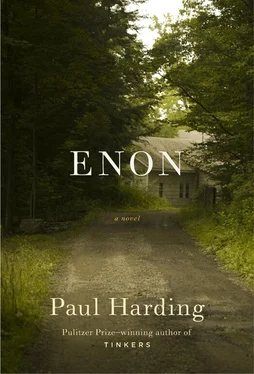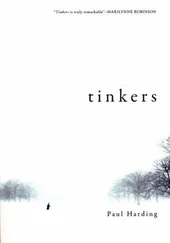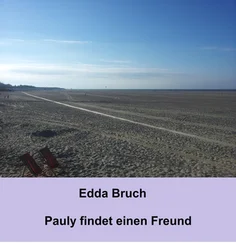Paul Harding - Enon
Здесь есть возможность читать онлайн «Paul Harding - Enon» весь текст электронной книги совершенно бесплатно (целиком полную версию без сокращений). В некоторых случаях можно слушать аудио, скачать через торрент в формате fb2 и присутствует краткое содержание. Жанр: Современная проза, на английском языке. Описание произведения, (предисловие) а так же отзывы посетителей доступны на портале библиотеки ЛибКат.
- Название:Enon
- Автор:
- Жанр:
- Год:неизвестен
- ISBN:нет данных
- Рейтинг книги:3 / 5. Голосов: 1
-
Избранное:Добавить в избранное
- Отзывы:
-
Ваша оценка:
- 60
- 1
- 2
- 3
- 4
- 5
Enon: краткое содержание, описание и аннотация
Предлагаем к чтению аннотацию, описание, краткое содержание или предисловие (зависит от того, что написал сам автор книги «Enon»). Если вы не нашли необходимую информацию о книге — напишите в комментариях, мы постараемся отыскать её.
Powerful, brilliantly written, and deeply moving Paul Harding has, in Enon, written a worthy successor to Tinkers, a debut which John Freeman on NPR called "a masterpiece." Drawn always to the rich landscape of his character's inner lives, here, through the first person narrative of Charlie Crosby (grandson to George Crosby of Tinkers), Harding creates a devastating portrait of a father trying desperately to come to terms with family loss.
Enon — читать онлайн бесплатно полную книгу (весь текст) целиком
Ниже представлен текст книги, разбитый по страницам. Система сохранения места последней прочитанной страницы, позволяет с удобством читать онлайн бесплатно книгу «Enon», без необходимости каждый раз заново искать на чём Вы остановились. Поставьте закладку, и сможете в любой момент перейти на страницу, на которой закончили чтение.
Интервал:
Закладка:
Toward midnight, one of the girls said, “Man, it’s almost twelve. I got to go; my parents will be home soon and get all over me if I come in later than them.”
The other girl said, “Yeah, me, too.” Both girls stood up and stretched and brushed off the backs of their skirts, their bracelets jingling. I heard the cork squeaking back into the mouth of the wine bottle. The girls walked back down the hill, past my family, still talking, but more quietly. They passed under the light of a streetlamp and into shadow and were gone.
THE CARETAKER OF THE Enon cemetery was named Aloysius Shank. He talked through a voice box wrapped around his neck with a cord. There was a hole in his throat, from an operation for cancer. He smoked a pipe, though, and told me once about having smoked four packs of cigarettes a day for fifty years, since he’d been eight years old.
He bubbled away at his pipe and said, “But I quit to smoking when I got that cancer.”
Although I’d hardly ever spoken with Aloysius before Kate died, I’d known about him since I could remember. He had always simply been the man at the cemetery. I remember asking my mother once, when I was a kid and had already seen him countless times, for years, as we passed the graveyard in our car, “Mom, who’s that guy who’s always in the graveyard?”
She answered, “That’s Aloysius Shank.” She chanted, “God help Aloysius Shank! His shack is cold and dank! He pays no rent, his head got dent, and one of his legs is a plank!” That was a rhyme she had learned as a kid during recess at the Bessie Boston Elementary School, the same school I went to, was probably going to, in fact, when I asked her about Aloysius, sitting on the massive, maroon vinyl back bench of the woodpaneled station wagon my grandfather, her dad, had given us — as he would continue to do with all his station wagons until he died, and the last of which was still sitting in my driveway, and still worked, fifteen years after his death, ten after my mother’s, and two weeks after Kate’s — no seat belt on, windows open, wind roaring, sun pouring in, on our way to poke around the Woolworth’s five-and-dime store — she the clothes and knickknacks, me the records in the store’s tiny music section — and after go to the drugstore lunch counter, where she’d get coffee and a blueberry muffin and I’d get a chocolate honey-dipped doughnut and a chocolate milk in a paper carton. When I asked her who’d made the rhyme up, she said that she had no idea, that everyone just seemed to know it.
It was true that Aloysius had a prosthetic leg. The original had been wooden, but it was plastic by the time I knew him, paid for collectively by the members of the Enon Fire Department, who all chipped in for it because he had been a mascot or honorable member for as long as he’d been the caretaker at the graveyard. (All the members of the Enon Fire Department were buried in the same section of the cemetery, of which Aloysius always took special care. There was a brigade of two dozen souls in the section, reaching back to the first official members of the department when it had been established, in 1821, with the purchase, by subscription, of six ladders and three hooks, according to the local histories.) He told me that he’d lost the leg when a Japanese kamikaze plane had struck the deck of the transport ship he’d been an ensign on in the Pacific during World War II. His left leg had been torn off at the knee by a chunk of white-hot shrapnel.
“Lucky it was heated,” he said, pursing on his pipe. “Cauterized the wound before I even hit the water.” (He’d been thrown overboard by the blast.) “Would have bled out right there and been fish food otherwise.”
It was also true that Aloysius had a dent in his head. “Crease” is a more accurate description. A shard from the same exploding plane had propellered its way into his forehead, just above his left eyebrow.
“When I woke up on the hospital ship, the metal was still stuck in my head. They were afraid to pull it out, were afraid it would kill me, that it was the only thing keeping my brain from spilling out of my head,” he said. “I told them take it out, I didn’t care, because living with that saw blade of a piece of Japanese metal stuck in my crown made me feel like a traitor, or like some sort of secret weapon they could hear through and send radiation waves through or something, and it gave me a terrible headache right behind my eye. So they took it out and patched over the hole with a piece of tin or something or other and that was that. The only thing that was different after is that now I can’t smell anything and green looks red and sometime I forget who I am for a minute.”
Aloysius had the habit of running one of his forefingers up and down the crease when he was concentrating. It was impossible to tell whether the injury had done anything else to his personality. He did belch, fart, and pick his nose freely, in front of anyone who happened to be nearby, no matter what the occasion — funeral, Memorial Day speech, or smoke break. Sometimes, when I thought about the plate in his head and his old wooden leg, which I fitted in my mind with rusty metal hinges and braces, and even that piece of shrapnel, which appeared in my imagination as a table-saw blade sticking up out of his head like a steel rooster comb, it seemed that Aloysius was in fact some archaic military experiment gone awry. He was like a vacuum tube Frankenstein. When the Japanese had tried to make a double-agent robot to sabotage the enemy, they had succeeded only in creating a pipe-chomping gravedigger who saw the lush green lawns of the cemetery as blood-red and who had an abiding love for firefighters.
My mother got to know Aloysius when my grandfather died. After my grandfather’s ashes had been buried, my mother walked the two and a half miles from her house to the cemetery so that she could put her hand on top of his stone and talk with him. She wiped pollen and dirt off the top of the stone with the tissues she kept in her purse. Every spring, she planted red geraniums in front of the stone, in time for the Memorial Day parade. She overwatered the flowers, but since the grave was several feet up a slope, the water drained away and didn’t drown them. My mother had spent her whole life in the town, so she knew many people in the cemetery. Besides her father and mother, her paternal grandmother, Kathleen Crosby, was buried there, as well as both of my grandfather’s sisters, Marjorie and Darla, who had followed my grandfather down from Maine and lived within a quarter mile of him until they died (Marjorie of lung cancer, Darla of a stroke, although my grandmother always said that it was a stroke if by stroke you meant gin). Many of the people with whom my grandparents had been friends when my mother was young were buried there, too. My mother could offer a census of the old neighborhood; she knew where every person from her parents’ group of friends was buried, and once my grandfather was there, and soon after my grandmother, too, she regularly planted and tended flowers at their stones as well. Since she spent so much time in the graveyard, she and Aloysius got to know each other. When she died, Aloysius planted geraniums in front of the headstone for the first Memorial Day parade after her death. I felt embarrassed, and when I saw him at the ceremony, I thanked him for remembering my mother and for planting the flowers, and said that I’d make sure to plant them the next year.
He said, “We all end up here sooner or later. Your mother was a nice lady.”
I BEGAN TO WALK the length and breadth of Enon every day, as late summer turned into early autumn, wandering paths and the old railroad line, where deer grazed and coyotes sometimes commuted. Since I’d broken my hand so severely, I’d been able to refill the prescription for painkillers. In order to conserve the pills, I got into the habit of taking one in the morning, when I started my walk, then two or three at once later in the afternoon, and abstaining from taking any at night, drinking whiskey until I fell asleep, to get me through to the next day. After wandering all morning, at noon I would sit against the trunk of a hemlock or chestnut tree and eat an apple and a chocolate bar, or whatever I had found scavenging through the increasingly bare cabinets at home, and drink rusty-tasting water from an old tin canteen. A breeze would rise and I’d fall asleep watching the traces it made among the ferns. I would awaken curled up on my side, warm against the ground but chilled down my back. I would curl up tighter but be unable to warm myself. It would be late afternoon and the warmth gone from the sun, and the sun’s light would knife through the trees sharp and gold. As chilly as it might be, I did not want to return to the house. The idea of returning to the house, cold, too, my steps echoing through its empty rooms, the plates and glasses in the sink clanking as I lifted a dirty bowl from the pile and swabbed it with a dirty dish towel and poured stale corn flakes into it and poured water from the tap onto them because the milk was sour and looked for a spoon that didn’t have old food cemented on it and couldn’t find one and so just tossed the bowl of cereal into the sink, where it split in two and shattered a juice glass, and so on, until I had swallowed enough pills and drunk enough whiskey to get past the rightful despair at the condition of the house and myself in it, that idea — the idea of that sequence of acts — was intolerable.
Читать дальшеИнтервал:
Закладка:
Похожие книги на «Enon»
Представляем Вашему вниманию похожие книги на «Enon» списком для выбора. Мы отобрали схожую по названию и смыслу литературу в надежде предоставить читателям больше вариантов отыскать новые, интересные, ещё непрочитанные произведения.
Обсуждение, отзывы о книге «Enon» и просто собственные мнения читателей. Оставьте ваши комментарии, напишите, что Вы думаете о произведении, его смысле или главных героях. Укажите что конкретно понравилось, а что нет, и почему Вы так считаете.












